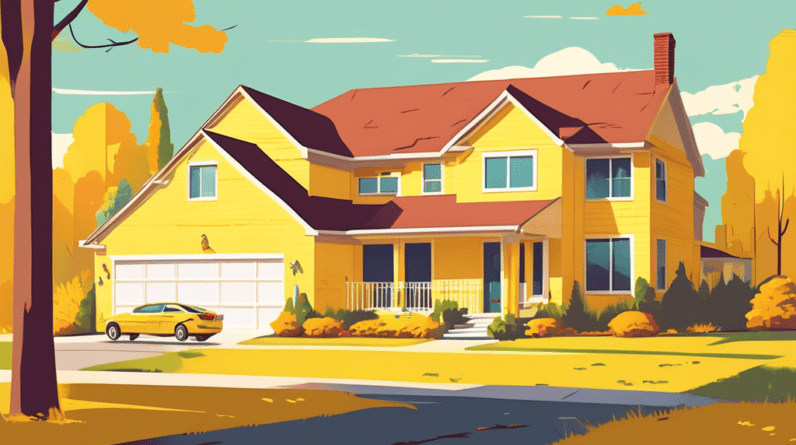
Kissimmee Commissioner Proposes Converting Garages into Affordable Housing
In a bold move to address the burgeoning affordable housing crisis, a Kissimmee city commissioner has put forth a controversial proposal: converting residential garages into affordable housing units. This initiative, while still in its nascent stages, has ignited passionate debate across the city, with proponents lauding its potential to alleviate housing burdens and critics raising concerns over property rights and neighborhood aesthetics.
The Genesis of the Proposal
The proposal emerged against a backdrop of escalating housing costs and a growing disparity between income levels and housing affordability in Kissimmee. With the median home price soaring and rental rates following suit, a significant portion of the city’s workforce, including teachers, service workers, and first responders, are finding themselves priced out of the very communities they serve.
Commissioner [Commissioner’s Name], the driving force behind the initiative, argues that converting underutilized garages presents a pragmatic solution to unlock affordable housing potential within existing neighborhoods. The proposal envisions homeowners voluntarily opting into the program, with the city providing financial incentives and potentially partnering with non-profit organizations or developers to facilitate the conversions.
Potential Benefits: A Glimmer of Hope for Renters?
Advocates of the garage conversion proposal highlight a myriad of potential benefits, primarily centered around increasing the supply of affordable housing options and revitalizing struggling communities:
- Increased Housing Supply: By tapping into the existing housing stock, the initiative could swiftly introduce a significant number of new rental units into the market, potentially easing the pressure on rental rates and providing much-needed relief for cost-burdened residents.
- Neighborhood Integration: Unlike large-scale affordable housing projects often relegated to the city’s periphery, garage conversions offer a more dispersed approach, integrating affordable housing options within established communities and promoting socio-economic diversity.
- Revitalization Potential: The influx of new residents could inject vitality into neighborhoods, supporting local businesses, enhancing community safety through increased activity, and fostering a greater sense of community cohesion.
- Financial Incentives for Homeowners: Participating homeowners could benefit from a steady stream of rental income, potentially easing financial burdens, enabling home improvements, or supplementing retirement funds.
Addressing Concerns: Navigating Property Rights and Aesthetic Impacts
While the proposal has garnered support for its potential to address the housing crisis, it has also sparked valid concerns, primarily focused on property rights, neighborhood aesthetics, and logistical hurdles:
- Property Rights: Critics argue that mandating or incentivizing garage conversions infringes upon the property rights of homeowners who might have different visions for their property use.
- Neighborhood Character: Some residents express concerns about the potential impact on neighborhood aesthetics, fearing that a proliferation of converted garages could detract from the visual appeal and character of their communities.
- Parking and Infrastructure: The conversion of garages into living spaces raises concerns about parking availability, particularly in areas with limited on-street parking, potentially leading to congestion and disputes among neighbors.
- Cost and Complexity: Converting garages into habitable living spaces requires significant construction, plumbing, electrical, and ventilation upgrades to meet safety and habitability standards, potentially posing financial burdens for homeowners.
Finding a Path Forward: Open Dialogue and Community Engagement
The garage conversion proposal, while undeniably ambitious, has ignited a crucial conversation about innovative solutions to address the affordable housing crisis in Kissimmee. Moving forward, open and transparent dialogue involving all stakeholders is essential.
City officials must prioritize community engagement, holding town hall meetings, workshops, and online forums to gather feedback, address concerns, and incorporate community input into the proposal’s design and implementation.
Furthermore, exploring alternative solutions, such as inclusionary zoning policies that incentivize developers to incorporate affordable units in new constructions, expanding public transportation options to connect residents to employment centers, and investing in down-payment assistance programs for first-time homebuyers, should remain paramount.
The Road Ahead: Collaboration is Key
The Kissimmee garage conversion proposal underscores the urgent need for creative and multifaceted approaches to tackle the affordability crisis gripping cities nationwide. While the path ahead will undoubtedly require navigating complex challenges and balancing competing interests, open communication, community collaboration, and a shared commitment to finding sustainable solutions will be paramount. Only through such collaborative efforts can Kissimmee strive towards a future where safe, affordable housing is within reach for all its residents.






